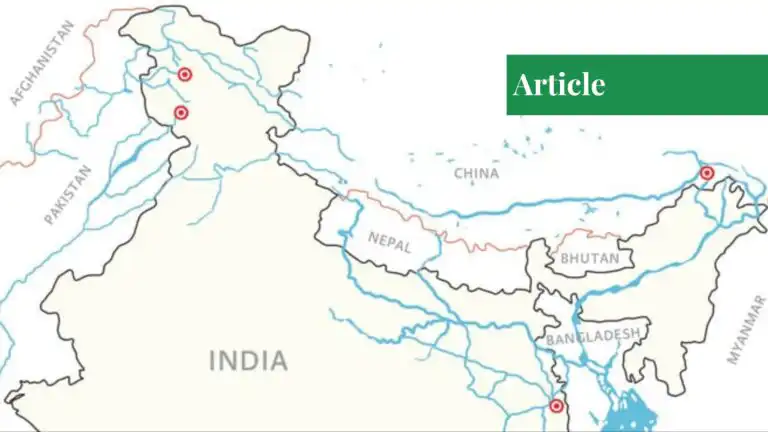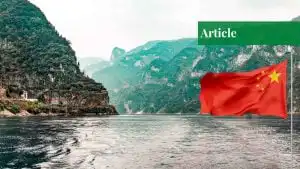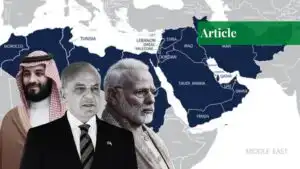The Teesta water dispute concerns Bangladesh and India’s water-sharing agreement for the Teesta River. It has been a major point of contention between the two states and a major topic of discussion during the bilateral talks.
Teesta River Dispute: A Background
The Teesta River is a 414 km long river that flows through West Bengal and Sikkim, India before crossing the Bay of Bengal through Bangladesh. After the great river systems of Meghna, Brahmaputra, and Ganges, Teesta is considered to be the fourth largest transboundary river between Bangladesh and India.
The significance of the river for Bangladesh is evident from the Asian Foundation’s 2013 assessment, according to which the floodplain comprises around 14% of Bangladesh’s total cultivated land and provides direct livelihood options for approximately 73% of its inhabitants. On the other hand, for India, it is important because it is the lifeline of North Bengal, and the majority of the districts of West Bengal are heavily dependent on the water resources from Teesta. The river holds great importance for the livelihoods, drinking water, and irrigation of both states, making the equitable distribution of water between both states a contentious issue.
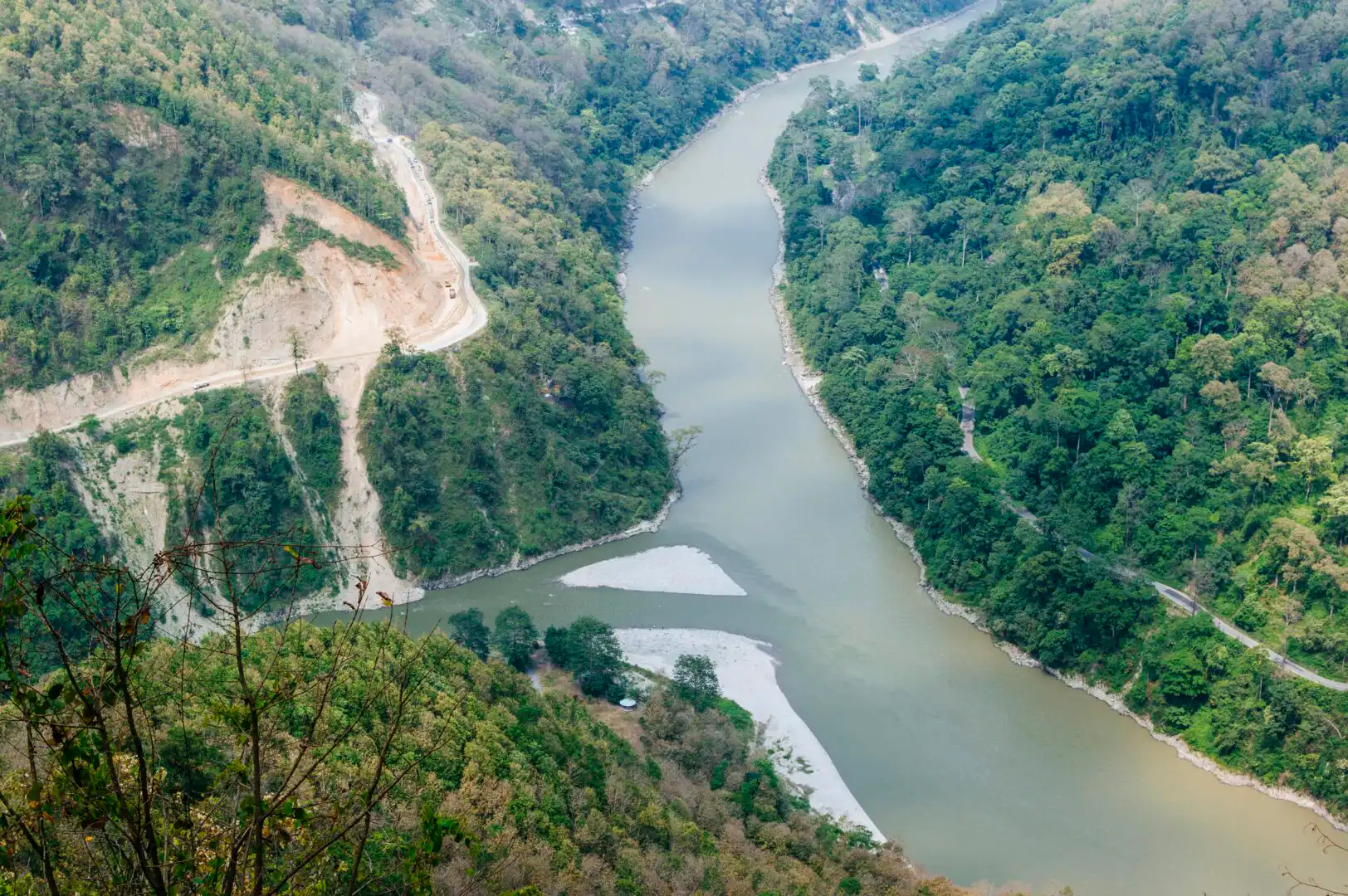
The dispute started in 1951 when then East Pakistan (Bangladesh) and India agreed on sharing the Ganges River, including the Teesta River. Later on, when Bangladesh gained independence from Pakistan, the Indo-Bangladesh Treaty of Friendship and Cooperation in 1972 finally laid the foundation to discuss water-sharing, but Teesta was still not discussed. However, in 1983, an ad hoc agreement was made under the aegis of the Indo-Bangladesh Joint Rivers Commission. In this agreement, India agreed to share 36% of Teesta water resources with Bangladesh and keep 39% for itself. While the decision about the remaining 26% was undecided. This was a temporary arrangement that lasted till 1985.
In 2011, PM Manmohan Singh visited Bangladesh, and a draft for water-sharing agreements was prepared. According to the draft, 37.5% of Teesta waters would be allocated to Bangladesh and 42.5% would be retained by India in the dry season. The agreement hit a roadblock when the chief minister of West Bengal, Mamata Banerjee, strongly objected to the draft. She stated that this agreement would lead to a significant water shortage in West Bengal, leaving a negative impact on agriculture. As there was no formal agreement, the management of water sharing was done on an ad hoc basis, which led to tensions between the states, specifically during the dry season.
Major Concerns
The dispute has led to major environmental, humanitarian, and political concerns for both India and Bangladesh.
Environmental Concerns
The flow of the Teesta River has been badly affected by climate change, leading to unpredictable monsoons and a decrease in glacial meltwater from the Himalayas. This has exacerbated water scarcity, straining the dispute further. Another environmental concern is the threat to the riverine ecosystems caused by the over-extraction of water. This has degraded the biodiversity and livelihood of the communities that are dependent on the river.
Political Concerns
In India, water is a state subject, which means that the decision regarding water sharing with a foreign country needs the consensus of the government of the concerned state. In the Teesta water dispute, the objection of West Bengal’s government is a major hurdle in resolving the dispute and reaching a conclusive agreement. Furthermore, it also highlights the complexities within India regarding interstate relations, where the central government needs to balance its national interests with the concerns of the respective individual states.
Humanitarian Concerns
The lack of water resources in Bangladesh has led to severe water shortages during the dry season, having a drastic impact on food security, agriculture, and livelihoods. The Teesta-dependent regions have been facing increased migration, economic challenges, and social unrest, which has complicated the humanitarian situation in Bangladesh.
Current Situation
Bangladesh has been demanding an equitable share, particularly during the dry season when the flow of water decreases. In addition to this, it is being argued that the current water flow is insufficient for the agricultural and domestic needs of the country; therefore, an increase in share in the Teesta River is being demanded. Bangladesh has been constantly raising its concerns regarding the finalization of the water treaty. However, there has not been any positive response from India. This attitude has further fueled Bangladesh’s concerns regarding the current plans of India to build canals, which might further divert the water from Bangladesh.
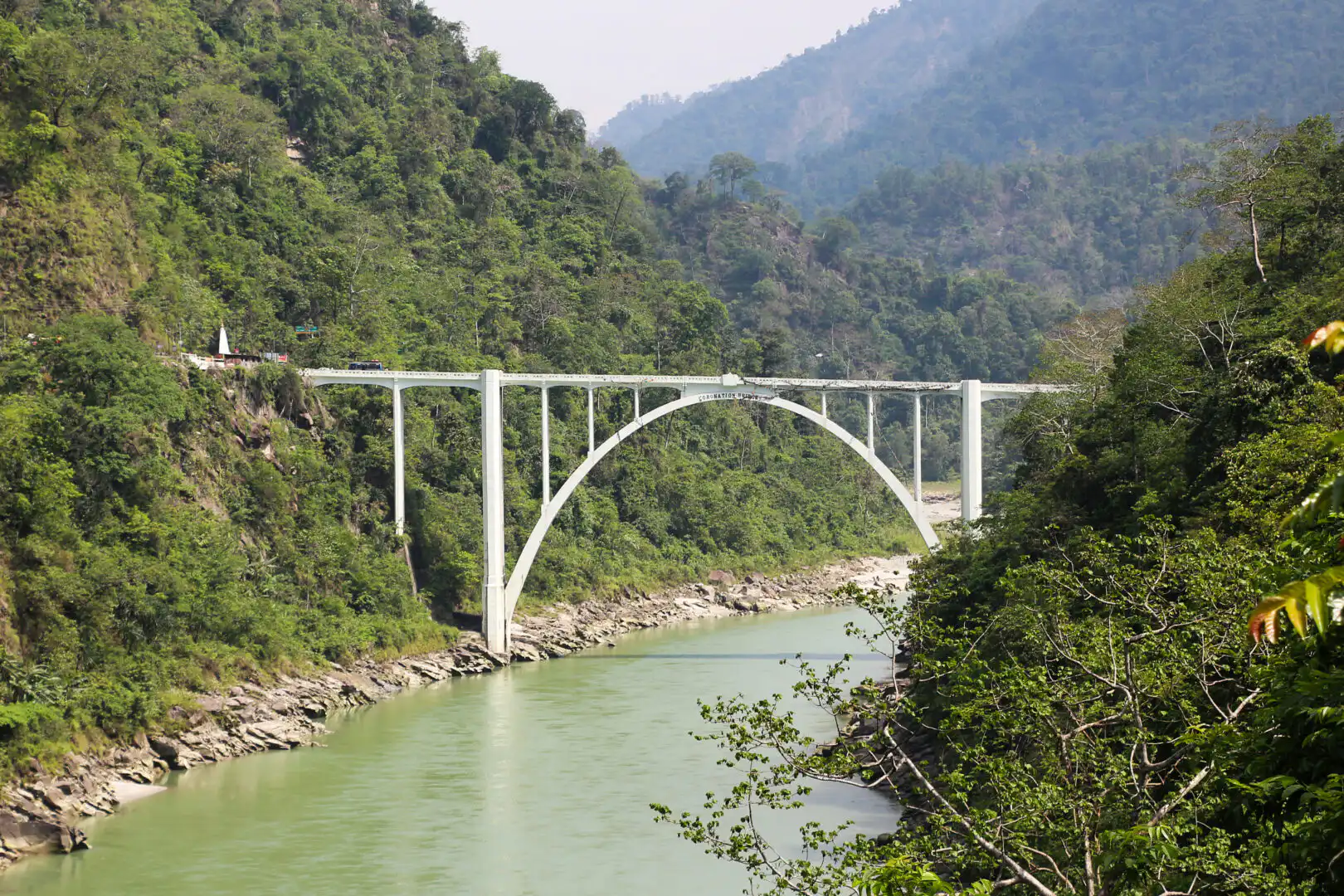
Disappointment from India has led Bangladesh to collaborate with China to initiate the Teesta River Comprehensive Management and Restoration Project (TRCMRP) in order to address the crises of water scarcity and floods in the Teesta River. In 2016, a memorandum of understanding was signed between Bangladesh and China for collaboration on water sector initiatives. After this, China lent Bangladesh $1 billion. This eventually led to the approval of the TRCMRP report in 2019, and the project was set to be completed by the end of 2025.
Recently, India has shown great interest in financing the Teesta River project. The major objective behind this financing is to counterbalance the involvement of China in the region. India is trying to discourage Bangladesh from relying on Chinese investments by financing the project, thereby reducing China’s strategic influence in this region. If India is successful in financing this project, it will be able to foster strong bilateral ties with Bangladesh. This would ultimately lead to establishing a stable regional environment.
However, there are various uncertainties around this development, such as whether India should finance this project or not and whether should Bangladesh agree to it or not. If observed from Bangladesh’s perspective, it can manage the water issue through trilateral cooperation between China, India, and Bangladesh. This collaboration with India and China would pool resources and influence, potentially leading to an efficient and advantageous outcome for all the involved parties. However, if the strategic rivalry between India and China is considered, it would be difficult to achieve a cooperative framework, which would require diplomatic efforts and compromises from the involved parties. Nonetheless, if successful, it would set a precedent for future multilateral initiatives within Southeast Asia, leading to greater stability in the region.
Conclusion
The Teesta River dispute is a complex and sensitive issue between Bangladesh and India, deeply intertwined with environmental challenges and regional politics. In order to resolve the conflict, a balanced approach is required that considers the rights and needs of both India and Bangladesh. Through sustained diplomatic efforts, technological advancement, and regional cooperation, a long-lasting solution could be achieved. This would ultimately strengthen the relations between India and Bangladesh and ensure the well-being of individuals depending upon the Teesta River.
If you want to submit your articles and/or research papers, please check the Submissions page.
The views and opinions expressed in this article/paper are the author’s own and do not necessarily reflect the editorial position of Paradigm Shift.
Areej Ajmal is a lecturer at the University of Lahore. She possesses a robust academic background in political science from Punjab University, Lahore. Her expertise encompasses democratization, global and gender politics.

